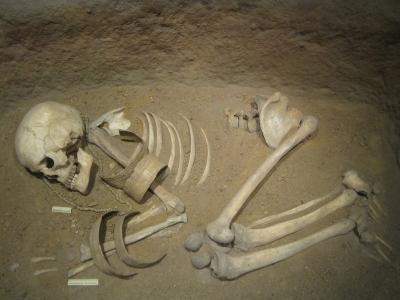Podcast: Play in new window
BOB HIRSHON (host):
War and human nature. I’m Bob Hirshon and this is Science Update.
Some scholars believe that humans are inherently war-like, with civilization reining in those urges. But anthropologists in Finland have found evidence to the contrary. Douglas Fry and his colleagues at Abo Akademie University analyzed past studies of nomadic foraging societies, which live much like our prehistoric ancestors.
DOUGLAS FRY (Abo Akademie University, Finland):
People just assume there was a lot of war in the past, and instead what we found is that actually, there’s not all that much killing going on.
HIRSHON:
Of the killings that did take place, 55 percent were one-on-one homicides, and 85 percent took place within a self-contained group. And the reasons, when they could be determined, were often personal, like revenge and romantic rivalries. The study suggests that if anything, human nature is more vulnerable to crimes of passion than to organized attacks on other groups. I’m Bob Hirshon for AAAS, the Science Society.

